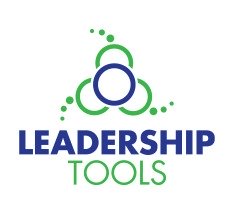Develop-Leadership
Develop-leadership using this online-leadership-tool to provide a roadmap and help you move toward greater success.

Donna Rae Scheffert, President, Leadership Tools, a U.S. based consulting firm. She is a retired Leadership Development Specialist from the University of Minnesota Extension. She is the owner of online-leadership-tools.com
Develop Leadership Confidence and Competence
This online-leadership-tool is a great resource to provide a roadmap of how to develop-leadership for people leading others. Don't leave leadership development to chance!!
Leadership development is the act of expanding the capacities of individuals, groups, and organizations to participate effectively and humanely in leadership roles and processes.
Everyone can grow and learn in ways that will make them more effective in the various leadership roles they take on and leadership processes that they contribute to. (adapted from David V. Day)
Leader Success Factors
(These characteristics set you up for SUCCESS)
To what extent to these characteristics describe you?
– ability to establish strong relationships
– know how to recruit, build, and successfully lead teams
– able to adapt and develop, especially during transitions
– emotional stability
- proven integrity
- analytical
– cognitive skills
If these characteristics apply to you, leading is one of your strengths to sustain and build on.
Leader Derailment Pattern
(These characteristics could mean TROUBLE)
To what extent do these characteristics apply to you?
– difficulty building and leading teams
– problems with interpersonal relationships
– too narrow functional orientation/ignoring systems
– being unable or unwilling to change or adapt
– failing to meet goals and objectives
If one of more of these characteristics apply to you, you are an excellent candidate to further develop-leadership skills.

What personal characteristics help develop-leadership skills?
Self Assessment Tool
These personal characteristics, traits, and innate abilities are attributes thought to be associated with leaders and leadership. Research has linked them to leadership success. To develop-leadership focus upon building these characteristics.
• Source: Encyclopedia of Leadership, Sage Publications, 2004.
Assumptions
• One person cannot embody all 33 characteristics- even if they are outstanding leaders
• Many of these characteristics can be viewed along a continuum (vs. you either have it or you don’t).
• Assessing the strength of these characteristics can be done by self and/or others.
1. Achievement Motivation – the desire to achieve a personal or public standard of excellence.
2. Ambitious – to be aspiring, hardworking, striving.
3. Authencity – the quality of being authentic, trustworthy and genuine, free from hypocrisy.
4. Broad-minded – ability to be open-minded, flexible, receptive, tolerant.
5. Caring – appreciative, compassionate, concerned, loving, nurturing.
6. Charisma – quality that some people possess that allows them to relate to & inspire others at a deep emotional level.
7. Conformity – social influence that induces others to follow their vision and ideals without threat or surveillance.

8. Creativity – able to develop new ways of thinking and acting that change the norm or baseline.
9. Credit – the extent to which past relationships have resulted in a “credit balance” that a person can draw on to take innovative action on behalf of group goals.
10. Dominance – exercising controlling power or influence over something, usually other people, either through prosocial (popularity) or antisocial (overly aggressive) approaches.
11. Cultural Intelligence – understanding one’s own culture and cultural values, others’ cultures, and adapting oneself and one’s leadership to the needs of culturally diverse followers.
12. Efficacy – the belief in the ability of self and others to enact behaviors leading to desired outcomes.
13.
Emotional Intelligence – the ability to perceive accurately, appraise, and express emotions to promote emotional and intellectual growth.
14. Ethics – inquiry into right and wrong, good and evil, and virtue and vice and thus determining how one responds to morally relevant features & situations of the world.
15. General Intelligence –having good academic abilities (such as those measured by IQ tests).
16. Happiness – a sense of subjective well-being that has a positive effect on others.
17. High Hope – a pattern of thinking that includes clear goals, identification of effective strategies and motivation to implement those strategies.
18. Humor – is used as a creative and positive feature, enhancing dialogue and communications.
19. Inner-Leading – understanding of inner identity, purpose, vision, and core values to cope with the ever-changing, fast paced world.
20. Mental Models – using human mental representations and ideally adjusting them to context and dynamics changing over time as circumstances evolve.
21. Modeling & Leading by Example – a person who others admire thereby affecting their behavior; and/or involves imagining how this person would behave in a situation.
22.

Motivation– the means through which leaders motivate their followers to engage the tasks and activities necessary to actualize a decisions or vision. Either intrinsic – finds the activity satisfying in its own right, or extrinsic – rewards or punishments.
23. Narrative – storyteller – expressing a vision in terms and symbols and in ways reflecting the shared culture embedded in the minds and hearts of the people.
24. Negative Capability – is capable of being in uncertainties, mysteries, doubts with sustained reflective inaction.
25. Optimism – ability to retain a belief in their ability to control events & subdue its tendency to transmit negative, despairing messages.
26. Personality and Group Roles – ways people emerge as the group leader include bidding for a role where previous experiences matters and/or a person exhibits personality characteristics deemed suitable for the group leader.
27.Power Motivation – the desire or will for power to have impact on the world or to acquire prestige and reputation in the eyes of others.
28. Resiliency

– the positive psychological capacity to rebound, to bounce back from adversity, uncertainty, conflict, failure or even positive change, progress and increased responsibility.
29. Rhetoric – the ability of individuals to articulately shape and express their ideas through oral communication.
30. Risk Taking – the understanding of the possibilities that the choices one makes may bring suffering, harm, loss, or danger to the risk taker.
31. Self-Interest –acting in one’s own interest.
32. Social Intelligence – to think and act wisely in social situations and to understand and lead people.
33. Tacit Knowledge – understanding a complex set of links between problem situations with particular characteristics and the actions that should be taken given those characteristics.
34. Trust – ability to trust another.
35. Verbal Intelligence – learning and using language to accomplish certain goals.

Leadership Tools to Develop-Leadership
Facilitation. Training. Strategic Planning.
Donna Rae Scheffert
809 Mayflower Ct.
Northfield, MN 55057
Let me assist you and your organization. Call me to assist you to develop-leadership at 612.360.4484
